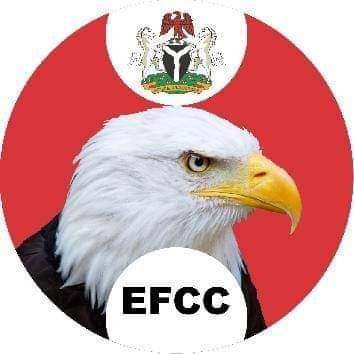Politics
Nigerians Need To Restore Their Political Sovereignty – Don

As the 2023 general elections draw closer, the Nigerian electorate have been urged to prepare to exercise their political sovereignty by ensuring that they do not cede the power to decide who become their leaders to anyone else.
A lecturer in the Department of Political Science, University of Port Harcourt, Dr Emmanuel Wonah gave the charge in an interview with The Tide in Port Harcourt.
Wonah said it was not just important for the people to understand that political power belongs to them, but that they also exercise that power without being unduly influenced to surrender it or use it unwisely.
He therefore advised the electorate to scrutinize the candidates that are being put up for election by the various political parties with a view to determining the person that is best prepared to protect and promote their interest and giving their mandate accordingly.
“I think that the people should be able to understand that they have the political sovereignty. They’re the ones that need to decide”, he said, noting that, on the face of it, it was difficult to pick out the particular politician that can faithfully deliver on promise.
He said it was imperative for the people to engage the candidates and assess them on the basis of their antecedents in order to establish their capacity and commitment to the cause of the people.
“Given the crop of politicians we have now, it’s difficult to know who is the right politician to deliver us, but Nigerians should be able to look at politicians who have very good strategies. It is not about I’ll build houses, I’ll construct hospitals. They should ask them how they’re going to do it. What are the measures they will put in place to ensure that they achieve them”, he said, adding that “If they (the people) are satisfied with all that, then they can vote for that person and that is how we can begin to restore the political sovereignty of Nigerians”.
The university teacher accused the Nigerian political class of hijacking the political process with the introduction of too much money into the process thereby polluting the system and making it difficult for the people’s participation.
“How many Nigerians can afford the exorbitant amount except those who have been in the political circle and the fact that they have made fortunes from their former positions they occupied in the Nigerian political system? And that explains the fact that the state and its institutions have become means of enriching our political elite in this country”, he said.
Wonah lamented that selfishness and greed have continued to characterize the actions of those in the leadership cadre of the country, leaving the poor masses in misery and hopelessness.
“They do not have the interest of the people at heart, even though democracy is all about acting on the mandate of the people. Democracy is also about allowing the people to actually decide what should be in their own interest.
So, if people can afford to buy these forms because of the public offices they had occupied before, it simply means that there’s a group of people that have tenaciously held on to the political system in this country. Some of them have been past governors who had performed poorly in their different states; some of them have been ministers who have not done well; some of them are serving governors (and) if you look at what is happening in their states, it is nothing to write home about; what is happening in their states does not qualify them to vie for the presidency of this country, but because of what they think they will get and because of the impunity they’ve enjoyed in doing what they did in office or what they’re doing in office, they have the guts to say they’re going to vie for the office of president of this country”, he said.
According to the teacher of Political Science, democracy in Nigeria is still wobbling as much of the norms and standard practices that characterize the popular participatory form of government were yet to be allowed to be firmly entrenched in the country.
“I think that Democracy in Nigeria is yet to find its feet. The reason is that, in a democracy, it is expected that the people should exercise their political sovereignty in terms of deciding who should be their leaders. And again, Democracy abhors coercion, abhors undue influence. The people should be free to choose from among alternatives who should be their leader or the kind of political party they should belong to.
“And again, in a Democracy, there should be no encumbrances in terms of participation. The people are expected to participate in deciding who be their leaders”, he emphasized, maintaining that until political parties in the country are purged of discriminatory, unfair, unjust and inequitable practices, Democracy will continue to be a mirage in Nigeria.
By: Opaka Dokubo
Politics
Rivers Political Crisis: PANDEF Urges Restraint, Mutual Forbearance

Accordingg to the statement, the Board and National Executive Committee of PANDEF, noted with very grave concern the recent spate of political developments in Rivers State.
“Regrettably, these developments have now degenerated into the decision of the Rivers State House of Assembly to commence impeachment proceedings against the governor and deputy governor.
“This is a deeply disturbing situation that demands urgent attention in order to forestall further escalation and breakdown of law and order.
“This concern is heightened by the critical importance and strategic centrality of Rivers to the Niger Delta region and to the broader socio-political stability and economic wellbeing of Nigeria as a whole”, the statement said.
The Forum called on all parties involved in the resurgent political imbroglio to sheathe their swords and embrace peace.
“This should be guided by the principles of give-and-take, dialogue, tolerance, and political equanimity.
“All stakeholders must place paramount importance on peace, development and the welfare of the people of Rivers.
“We must now focus squarely on good governance and development of the state,” the Forum said.
PANDEF commended President Bola Tinubu, the leadership of the All Progressives Congress (APC), respected elders of Rivers State, and other well-meaning Nigerians for their previous and ongoing efforts aimed at restoring peace and stability in the state.
Politics
Wike’s LGAs Tour Violates Electoral Laws — Sara-Igbe

Speaking in an interview on Saturday, January 10, Chief Sara-Igbe alleged that the minister had flouted regulations governing the commencement of electioneering campaigns by moving from one local government area to another to galvanise political support.
According to him, the action amounted to a clear breach of electoral guidelines being carried out with a troubling sense of impunity that could undermine the rule of law.
“Wike has violated the electoral laws of campaigning by going from local government to local government to talk to the people. He travelled from one local government to another. As a result of his visits to local government areas, he has broken election regulations and continues to do all these things without fear of repercussions”, Chief Sara-Igbe said.
The remarks came as Chief Wike was set to round off a state-wide “thank-you” tour that covered all 23 local government areas of Rivers State.
Although the minister had described the tour as an appreciation visit following support for President Bola Tinubu in the 2023 general elections, critics say the engagements have assumed an overtly political character.
Observers note that during several stops, including recent visits to Andoni and Bonny local government areas, the minister rallied supporters across party lines under what he termed a “Rainbow Coalition,” a move widely interpreted as part of a broader political strategy.
During these engagements, Chief Wike was also reported to have made remarks perceived as a veiled challenge to the authority of Governor Siminalayi Fubara, while repeatedly referencing the 2027 elections and urging supporters to prepare to “correct the mistake” of 2023.
Chief Sara-Igbe warned that allowing such activities to continue unchecked could erode public confidence in Nigeria’s electoral process and called on relevant authorities to enforce existing laws without fear or favour.
Politics
EFCC Alleges Blackmail Plot By Opposition Politicians

The Commission, in a statement on Wednesday, claimed that there were plans by the same group to escalate a smear campaign against its Chairman, Ola Olukoyede, to frustrate ongoing investigations and prosecutions involving prominent individuals.
The statement endorsed by the agency’s spokesman, Mr Dele Oyewale, claimed that the action was intended to distract the Commission through unfounded allegations of political bias in the discharge of its duties.
The EFCC warned that it would not stand by and watch “those recruited into this ignoble enterprise” or allow any attempt to derail it from “the patriotic task of improving public accountability in Nigeria.”
The Commission made it clear that those recruited into this venture were under close watch, adding that it would not tolerate any attempt to distract it from the patriotic task of improving public accountability in Nigeria.
“The EFCC reiterates its non-political stance in all its activities. Facts on the ground clearly show that any political actor belonging to the ruling party or opposition party, with corruption baggage, has no hiding place from the operational radar and dynamics of the Commission.
“As a matter of fact, several strong members of the ruling and opposition parties are either facing trial before the courts or being investigated by the Commission.
“It is needful that Nigerians appreciate the fact that the Commission is keeping faith with its Establishment Act in all its operations.
“Therefore, the Commission reiterates its commitment to justice, without fear or favour, in the fulfilment of its mandate,” the statement pointed out.

